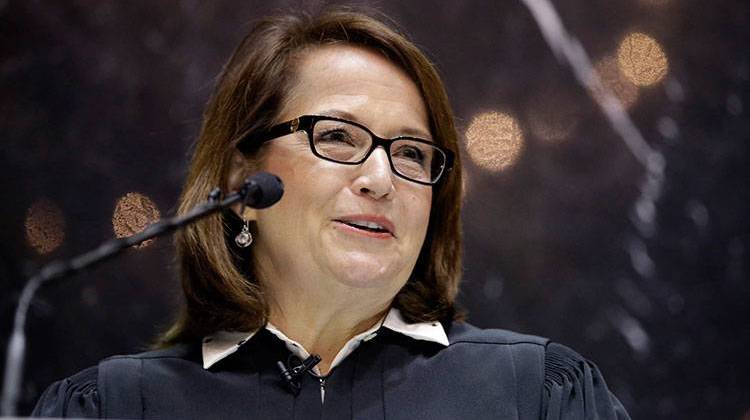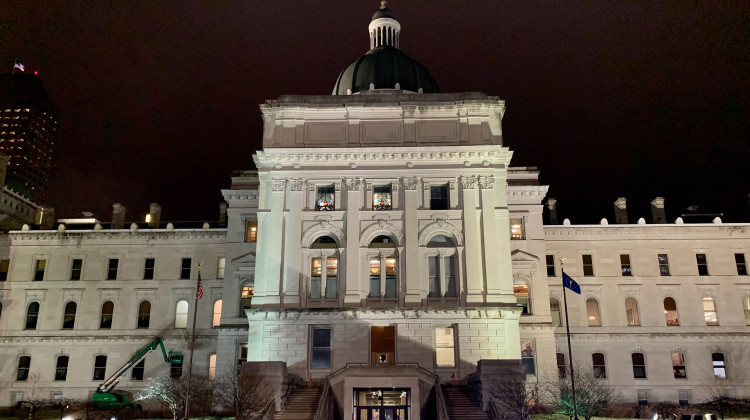
Indiana Supreme Court Chief Justice Loretta Rush delivers her State of the Judiciary address before a joint session of the General Assembly at the Statehouse, Wednesday, Jan. 13, 2016.
AP Photo/Darron CummingsINDIANAPOLIS -- Indiana’s mounting drug crisis has captured the attention of the governor and lawmakers over the last year. And during her State of the Judiciary address Wednesday, Indiana Chief Justice Loretta Rush says it’s no different for the state’s trial court judges.
She cited a Fayette County judge who says his county of just 23,000 saw 30 heroin overdoses in 30 days, and said the state’s drug courts will play a vital role in addressing the crisis.
“We cannot afford to incarcerate or institutionalize our way out of this drug crisis," Rush said. "Our approach must include helping sons and daughters, husbands and wives return to a life after addiction.”
Rush said that broader approach will work in concert with the state’s recent criminal code reform, which the court system continues to implement.
“The funding you’ve provided is already making a difference," Rush told lawmakers. "Forty-three counties have added 84 new community corrections and probation officers.”
In her address, Rush also honored Justice Brent Dickson, who will retire in April as the second-longest serving justice in state history.
 DONATE
DONATE








 View More Programs
View More Programs



 Support WFYI. We can't do it without you.
Support WFYI. We can't do it without you.